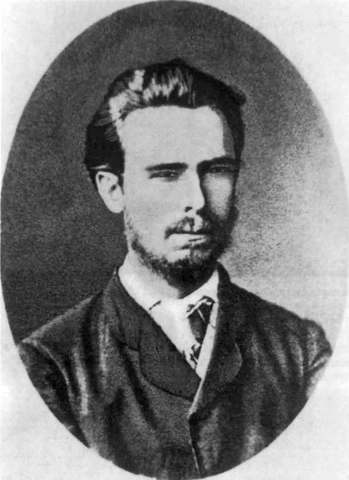As a young atheist in the 2000’s and 2010’s, I rode the wave of Youtubers and writers led by the late Christopher Hitchens went after religion in all its forms. There were the many debates between atheists and leading representatives and thinkers of the different Abrahamaic religions (One of its greatest moments, in my opinion, being the epic Intelligence Squared Debate on the Catholic Church with Christopher Hitchens and Stephen Fry vs. Ann Widdecombe and the Roman Catholic Archbishop of Abuja) as well as countless atheist Youtube content creators critiquing and ridiculing creationist public figures and content creators. However, with the passing of Hitchens, the wheel slowly came off the band wagon and those who continued to carry on their criticism of religion were reduced to ever more irrelevant or, in my eyes, less and less deserving targets.

Rest in peace, Hitch - picture from Wikipedia
Truth vs. Consequences
The most often heard atheist argument is that religion is not true. This is both wrong and irrelevant: Wrong because any atheist worth his salt does not make truth claims about religion. Like with anything else, he examines the evidence and concludes that there is insufficient evidence to conclude that gods or deities exist within a reasonable margin of error. Irrelevant because the assessment of whether a statement pertaining to the existence of gods is true (at least not absolutely true) cannot be concluded using the line of reasoning mentioned above and because the truthfulness of a statement is usually not what really concerns the atheist, but rather the negative consequences that comes with accepting a religion as true and using its ethical foundations as your own. As such, it should be the negative consequences of accepting a religious belief system that should be the focus of the atheist critique rather than the truthfulness of claims to the existence of gods. It does not mean that truthfulness of the existence of gods cannot be relevant to discuss or critique, such as in the case of the debate on religiously founded morality. However, to the fundamental question: “What is your main problem with religion?”, most atheists will answer: “it makes people do bad things”. Accepting this premise, however, the atheist should quickly realize that: 1) not all religious people do bad things and 2) many secular systems of thought suffer from the same issues.
The Religious Mindset vs. the Atheist Ideal
The common religious stereotype as perceived by the atheist is an individual, whose religious convictions – whatever they might be – are so strong that it compels him or her to commit bigoted or even violent acts against certain other groups such as sexual minorities, unbelievers and/or apostates in the name of their religion and seeks to uphold his or her religious beliefs by any means necessary even in the light of overwhelming evidence of the contrary. For the sake of argument, I will name this the Religious Mindset.
While I am aware that there is considerable variation among atheists when it comes to ethical and political value systems, I will argue that there are liberal/progressive values that are to a large degree held or at least claimed to be held among most atheists: Tolerance of opinion, free inquiry, acceptance of sexual minorities, a skeptical approach to ideas and values, etc.
Said in another way, what makes this stereotype abhorrent to atheists is that its values are incompatible with what the atheist considers to be the values that a ‘good person’ holds
The Secular Man with the Religious Mindset
The most notable historical examples of the Religious Mindset found among secularists are almost all found in the revolutionary communist movement, which paradoxically was the movement that can be credited for popularizing atheism among the general populace in the industrialized world. While there are great examples among more mainstream revolutionary figures, such the violence and homophobia of Argentinian revolutionary Ernesto ‘che’ Guevara, I will use a lesser known figure from this movement, the Russian revolutionary Sergey Nechayev, as an example of the Religious Mindset.

Sergey Nechayev - picture from Wikipedia
Nechayev was born in 1847, placing him in the radicalist, turbulent times of the Paris commune and anarchist thinkers such as Bakunin (with which he was associated with for some time) and Kropotkin. He was known in the movement for his single-minded pursuit of revolution by any means necessary.
It is easy to see how Nechayev’s single-minded goal of revolution fits easily into the Religious Mindset. In his manifesto Catechism of a Revolutionary he writes in the section The Duties of a Revolutionary toward himself that:
“The revolutionary despises all doctrines and refuses to accept the mundane sciences, leaving them for future generations. He knows only one science: the science of destruction. (...)”
and further:
“Tyrannical toward himself, he must be tyrannical toward others. All the gentle and enervating sentiments of kinship, love, friendship, gratitude, and even honor, must be suppressed in him and give place to the cold and single-minded passion for revolution. (...)“
Nechayev and a group of other revolutionaries even resorted to murder, when a member of his secret society, I. I. Ivanov disagreed with Nechayev about distribution of propaganda and tried to leave the group. Bakunin threatened with disassociating himself from the increasingly paranoid Nechayev after he started to steal letters and private papers from Bakunin and other exiled revolutionaries with the intent of blackmailing them. In a letter to Nechayev, Bakunin wrote:
"According to your way of thinking, you are nearer to the Jesuits than to us. You are a fanatic. This is your enormous and peculiar strength. But at the same time this is your blindness, and blindness is a great and fatal weakness; blind energy errs and stumbles, and the more powerful it is, the more inevitable and serious are the blunders. You suffer from an enormous lack of the critical sense without which it is impossible to evaluate people and situations, and to reconcile means with ends. (…) “
There is no doubt that the values that fuelled the actions of Nechayev are grossly incompatible with the ‘atheist good man’, however this is a man that followed no religious creed and was almost certainly an atheist. It is striking how similar Bakunin’s above critique of Nechayev is to the atheist critique of the Religious Mindset. With a few minor modifications, Bakunin’s words to Nechayev could as easily have been said by some atheist Youtuber to his creationist adversary around 2010.
The Irrelevant Atheist Critique of Religion
During his many debates with various religious figures, Christopher Hitchens would often recite a famous Steven Weinberg quote:
“With or without religion, good people can behave well and bad people can do evil; but for good people to do evil - that takes religion.”
I do not think this holds true any more. Behaviours that under most circumstances are considered horrible can be learned and normalized under the right conditions. Numerous normal citizens in the former DDR reported neighbours to the secret police for nothing other than expressing the desire to immigrate prove them wrong on this point and in the Western world, experiments such as the Milgram experiment have shown that normal people are willing to perform actions that went against their personal conscience as long as they were instructed to by an authority figure.
The contrary is also true. There are plenty of moderate believers in the industrialized world, who subscribes more or less to the atheist ideal mindset, while being actively religious and all major religions have reformed or moderate versions gaining popularity. Targeting these people or the reformed versions of the different religions are in my opinion missing the mark when it comes to criticizing religion as these people and these practices have little chance of resulting in the bad outcomes as defined by the atheist ideal. Obi-Wan said it best:
![]()
These are not the religious people you are looking for - picture from knowyourmeme.com
The Justified Atheist Critique of Religion
Does this mean that there is no religious people left to critique or that there is never a time to discuss the truth aspect of religion? Far from it – religious extremism which is certainly worthy of critique still exist in many places around the globe and discussing the veracity of religious claims can certainly be relevant when discussing moral foundations as mentioned above, or when these claims try to find their way into educational textbooks, as it is the case with American creationism.
However, one of my goals with this post is also to shred the light on that the exact same irrational thought patterns and behaviour, such as bigoted opinions on out groups as well as the censoring of opposing viewpoints can be found among secular, and especially very left-leaning individuals, who would rather die than call themselves religious.
Very insightful! Good writing style and intriguing content.
Congratulations @cogitecture! You have completed some achievement on Steemit and have been rewarded with new badge(s) :
Click on any badge to view your own Board of Honor on SteemitBoard.
For more information about SteemitBoard, click here
If you no longer want to receive notifications, reply to this comment with the word
STOP